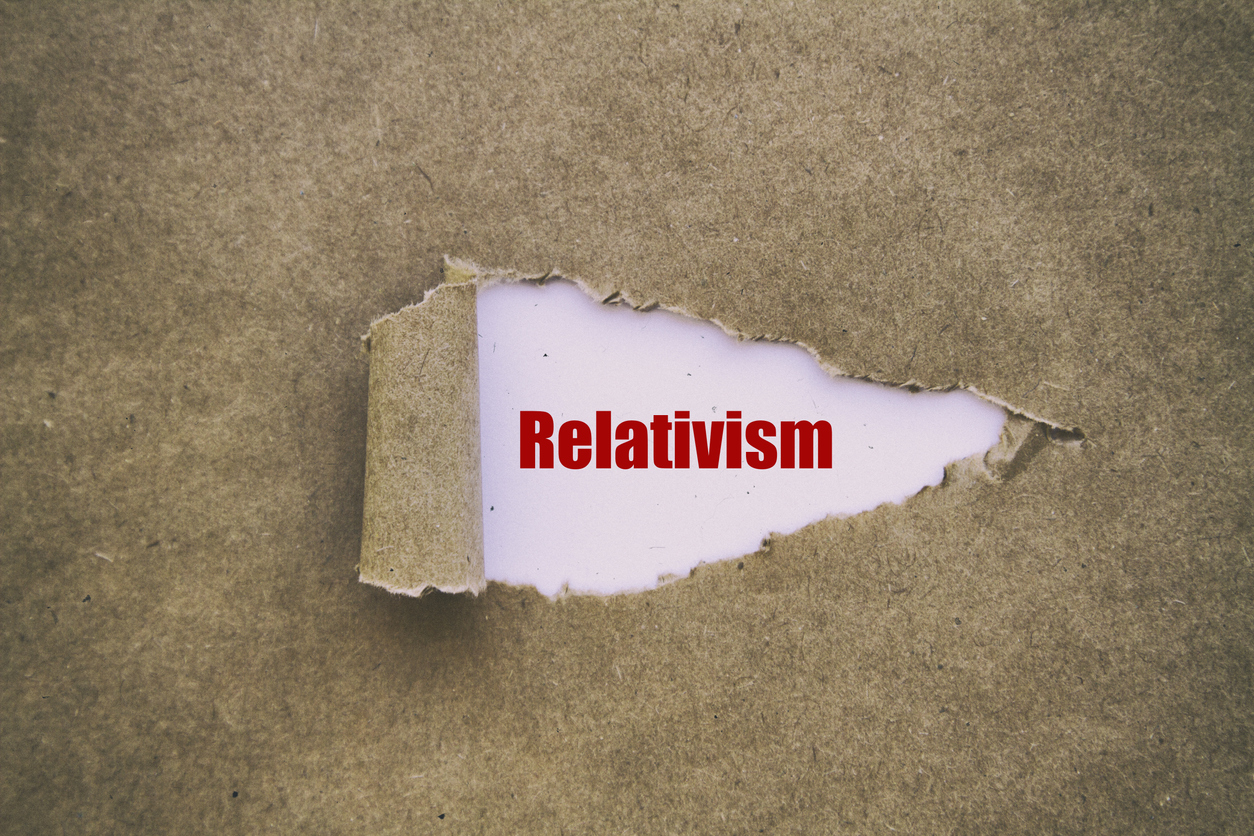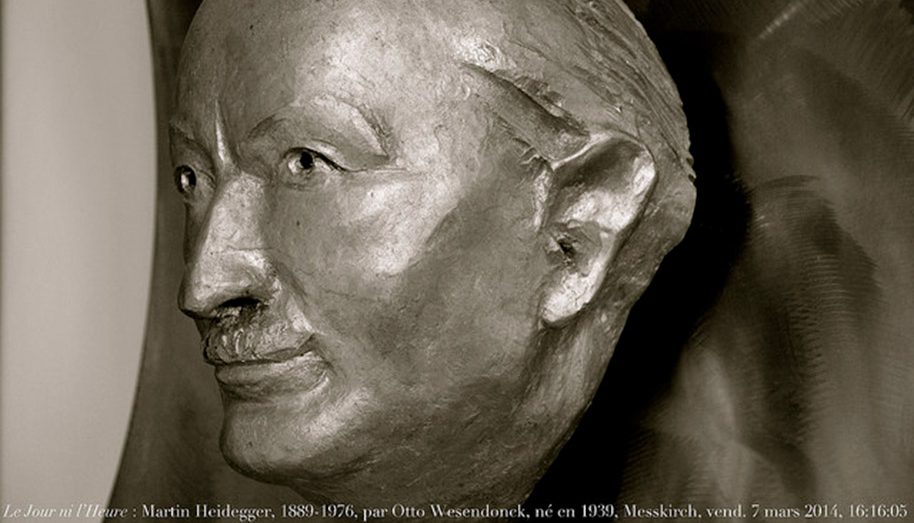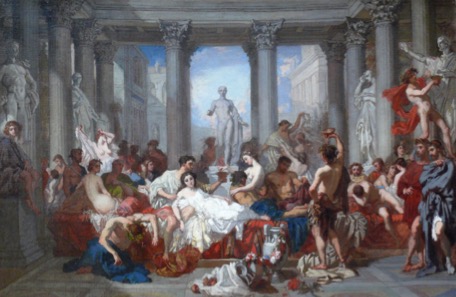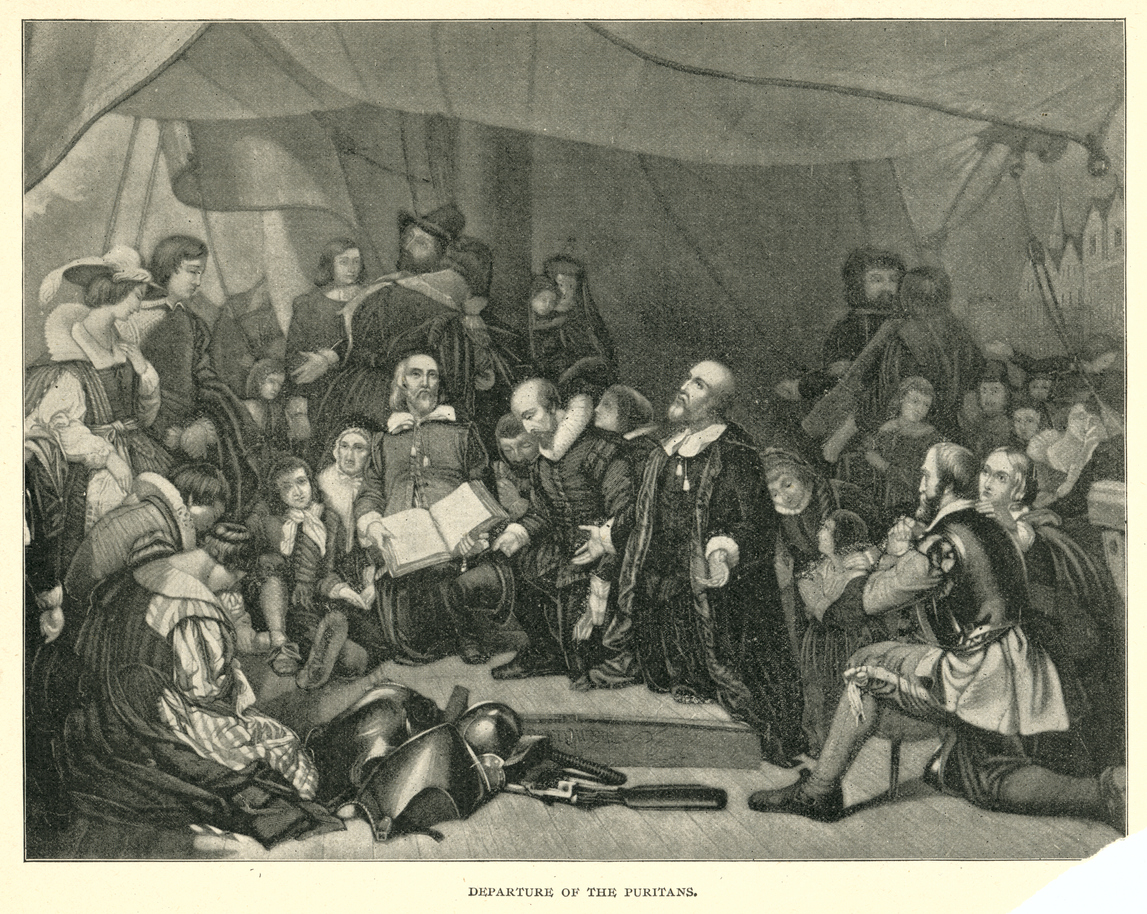We may never find a grand, unified theory of the “single truth," but we do not need it to know that men are not horses and beauty is truly good.
Ideas Still Matter: Relativism Remains

Since Jaffa wrote "Reichstag" in 1989, the campus left has adorned its ideology with a few new terms—but its underlying relativism remains the same.
In his reply to Harry Jaffa’s “The Reichstag is Still Burning,” Sam Goldman finds Jaffa’s outdated preoccupation with relativism to be “quaint.” But is Goldman’s alternative analysis more enlightening?
In response to Jaffa’s critique that campus radicals deny the possibility of objective morality, Goldman writes: “Unless we accept the specific—and controversial—account of ‘objective knowledge’ and ‘rational ground’ that Jaffa goes on to adumbrate, I do not think this statement is very helpful.” But Goldman’s refusal to explain what, exactly, makes Jaffa’s account of objective knowledge “controversial” is equally unhelpful. Does he have his own non-controversial account that he declines to share, or does he think that all accounts of objective knowledge are controversial? The reader can only guess.
Goldman expends more energy arguing against the idea that popular opinion is powerfully shaped by an intellectual elite (the proverbial set of “poets, prophets, and philosophers”):
“It was never all that plausible, moreover, that learned arguments about abstruse doctrines should have such direct political consequences, especially in a setting so culturally and geographically distant from their source. J.M. Keynes famously quipped that “[p]ractical men who believe themselves to be quite exempt from any intellectual influence, are usually the slaves of some defunct economist.” Strauss suggested a similar relationship of dominance, with political philosophers taking the place of economists…. But the emphasis on foreign, especially German, influence in many such studies neglects the possibility that American problems might have distinctly American origins. I think that’s a better explanation for the predicament of the American academy than the alleged influence of Marcuse, Heidegger, Weber, Nietzsche, or Hegel. Rather than relativism derived from the philosophical critique of natural right, today’s ‘wokeness’ phenomenon is more usefully understood as a secularized version of the Puritanism that America’s leading colleges and universities were founded to promote.”
But where does Goldman imagine the Puritans got their ideas? Does he think that the settlers of the Massachusetts Bay Colony stepped off their ships and invented a new theology de novo? Didn’t American Puritanism draw self-consciously from a long tradition of Protestant thought—most notably Calvin, but also including Zwingli, Luther and others? And, of course, Calvin et al. did not invent Christianity. Their writings drew, in turn, from thinkers stretching back to St. Augustine. Goldman doubts “abstruse doctrines” could shape a “culturally and geographically distant” environment. But if this idea of deep intellectual influences is implausible, the provenance of “distinctly American” Puritanism remains curiously shrouded in mystery. If it did not spring forth out of North America’s natural bounty, like turkeys and corn, where did it come from?
Goldman relies on superficial rhetorical similarities and religious imagery to argue that the current campus zealotry grew out of the old New England Puritan urge to expurgate sin. And yet, as he acknowledges, Jaffa himself noted this same religious vocabulary. But whereas Jaffa quickly dives into the deeper currents of modern thought, Goldman stays in the shallow end of the pool, simply asserting that “perverted” Calvinism, not relativism, is the source of campus radicalism. Undoubtedly, some remnant of stern Puritan moralism still lingers in our culture. But the United States is not a hermetically sealed intellectual island. If Goldman thinks that 300 year-old New England Calvinism is more influential in today’s academy than 50 year-old European existentialism, he must make a sustained argument for that proposition
The final paragraph of Goldman’s article graciously credits Jaffa with urging us to take “the quarrel between substantive conceptions of just and unjust, good and evil” seriously. But how? What is to be the foundation of ‘our’ side of this argument? Goldman ends his rebuttal at precisely the point where answers are most needed.
Goldman’s dichotomy also fails to consider the ways that degraded Protestant theology and relativism are connected; an argument Jaffa does make. What Jaffa’s analysis ultimately offers is an intellectually coherent framework for responding to the radicals’ position. Goldman does not describe any of Jaffa’s “quaint” criticism of relativism, so let me quote a passage:
“Relativism began with the assertion that the dispositions of our minds or souls, all the grounds upon which we hold anything to be true or good or precious, are rooted in our cultures. But there is no trans-cultural (or trans-historical) point of view from which different cultures can be measured or judged. In fact, there was no objective foundation for the dignity—or indignity—of any culture. All cultures being equally without such a foundation, were objectively equal in dignity. Because our curricula had failed to assimilate the truth of relativism, we had wrongly imputed superior dignity and importance to American (and Western) culture.”
Since that was written, the campus left has adorned its ideology with a few new terms. The “woke” now deplore white privilege, and combat micro-aggressions toward people of color, who are victimized by cultural appropriation and structural racism. But does this updated vocabulary really add anything new? The pendulum that once favored integration has now swung to supporting segregated dorms, but has the underlying doctrine changed at all? Not as far I can see.
If there is a Cotton Mather among today’s woke faithful, it must surely be Ta-Nehisi Coates. How would Goldman would respond to Coates’ demonization of white people as an “existential danger to the world”? Would he invoke Protestant theology to correct Coates’ “perverted” Calvinism? Would he quote the Bible? Jaffa is more formidable:
“Only Aristotle has given an account of that metaphysical freedom of the mind that, as Jefferson rightly declared, is the ground of all moral freedom, and hence of civil and religious liberty. I can do no more here than indicate the kernel of that account….Only when we see that there is an infinite variety of possible human beings, each equally human, do we begin to understand the difference between the human and the non-human. Only then can we see that men are not dogs or hogs or horses—or gods. Only then can the moral function of human intelligence begin to function.”
These are matters fit for years of study. Yet even in this “kernel” Jaffa gestures toward an answer to the regressive Left more potent than Goldman, perhaps, can imagine.
The American Mind presents a range of perspectives. Views are writers’ own and do not necessarily represent those of The Claremont Institute.
The American Mind is a publication of the Claremont Institute, a non-profit 501(c)(3) organization, dedicated to restoring the principles of the American Founding to their rightful, preeminent authority in our national life. Interested in supporting our work? Gifts to the Claremont Institute are tax-deductible.
Without a common understanding of the human person and the human good, academia is reduced to job training, politics, or consumerism.
Both the burning of the Reichstag and the decline of the American university resulted from the choices of philosophers. Jaffa’s final address is a condensed version of the book Allan Bloom should have written, but couldn’t.
Absent the teaching of human truth, absolutism preys on our atomized youth.
"Relativism," contra Jaffa (and Bloom), was merely administrative compromise. But the academy no longer believes all sin is relative...
What's the Root of Academic Rot?






